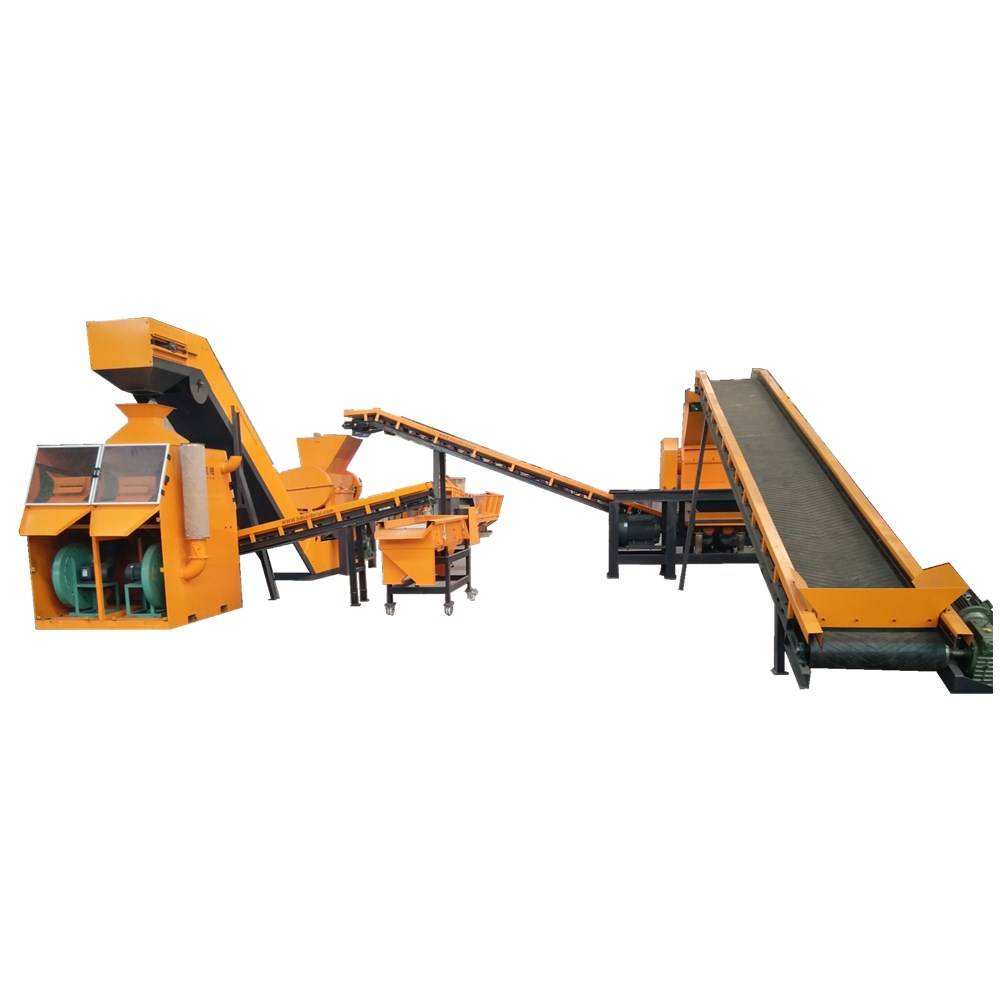
12 月 . 04, 2024 09:58 Back to list
Municipal Solid Waste Sorting Line An Essential Step Towards Sustainability
In today's rapidly urbanizing world, the management of municipal solid waste (MSW) has emerged as a critical challenge. With increasing population densities and consumption patterns, cities are grappling with ever-growing amounts of waste. A crucial strategy to address this issue is the implementation of municipal solid waste sorting lines. These installations not only improve waste management efficiency but also play a pivotal role in promoting sustainability and environmental conservation.
At its core, a municipal solid waste sorting line is designed to separate different types of waste materials so they can be processed appropriately. The sorting process typically begins at a waste collection facility where large bins of mixed waste are delivered. The first step is usually manual sorting, where workers remove large, easily identifiable items like plastics, metals, and cardboard. This step is critical as it prevents contamination of recyclable materials and helps streamline the subsequent mechanical sorting processes.
After manual sorting, various technologies come into play to further separate the waste. For example, conveyor belts transport the waste to different sorting stations where machines equipped with sensors and AI algorithms distinguish between various materials. Optical sorters can identify and separate plastics by type, while magnetic separators can extract ferrous metals. These advanced systems improve efficiency and accuracy, allowing for higher recovery rates of recyclable materials.
The benefits of an effective municipal solid waste sorting line are manifold. Firstly, by diverting recyclables from landfills, these lines contribute significantly to waste reduction. This is essential in combatting the environmental issues associated with landfill overflow, including greenhouse gas emissions and leachate contamination. Furthermore, recycling conserves natural resources by reintroducing materials back into the manufacturing cycle, decreasing the need for virgin resources.

Secondly, a well-designed sorting line enhances economic opportunities. The recycling industry is labor-intensive, providing jobs in sorting facilities, processing plants, and related sectors. These jobs are vital in creating local employment opportunities and can lead to the development of a circular economy. When communities invest in robust waste sorting infrastructure, they are not only addressing waste issues but are also fostering economic growth.
Moreover, public awareness and engagement are critical to the success of any municipal solid waste sorting initiative. Communities must be informed about the importance of waste segregation at the source. Educational programs can empower citizens to actively participate in reducing their waste footprint. By implementing community-wide recycling programs and providing accessible recycling bins, cities can enhance participation rates and ultimately increase the volume of materials being recycled.
However, the journey towards effective municipal solid waste sorting is not without challenges. Funding for such initiatives can be a barrier for many municipalities, particularly in developing areas. Additionally, maintaining a high standard of cleanliness and efficiency in sorting facilities requires ongoing training and investment in technology. As waste composition evolves with changes in consumer habits and products, the sorting line technology must adapt accordingly to ensure optimal performance.
In conclusion, municipal solid waste sorting lines are vital components in the quest for sustainable waste management. Their ability to recover valuable materials from waste not only benefits the environment by reducing landfill use but also creates economic opportunities. As cities continue to grow, investing in these sorting lines and educating the public on waste segregation will be fundamental steps towards achieving sustainable urban environments. The future of our cities depends on how we manage our waste today, making municipal solid waste sorting a necessary priority.
Latest news
Unveiling the Power of Eddy Current Separator
NewsSep.25,2024
Transform Your Home Recyclin:home metal shredder
NewsSep.25,2024
The Future of Waste Management with Recycling Line Picker
NewsSep.25,2024
The Benefits of a Metal Recycling Plant
NewsSep.25,2024
Revolutionize Material Separation with Onwang Technology
NewsSep.25,2024
Innovative Waste Management: Unveiling the MSW Sorting Plant
NewsSep.25,2024